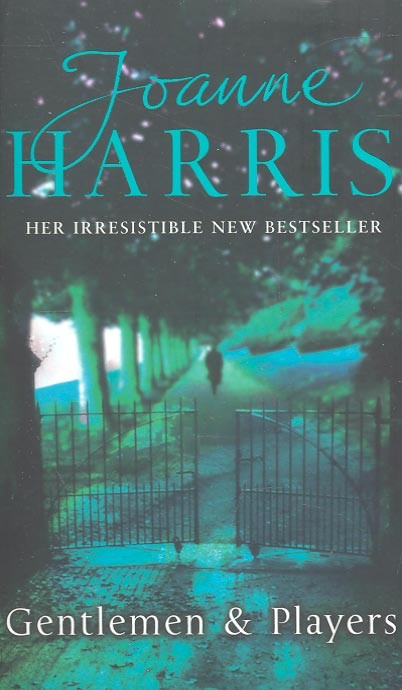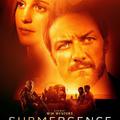Joanne Harris: Gentlemen & Players

I had not read any of Joanne Harris’s novels before. Though I often came across her nicely covered books, which reminded me of children’s books, and I watched the movie version of Chocolat several times and enjoyed it very much, I did not feel any urge to read any of her stories. Then a few months ago I read a review of a Harris novel on one of my favorite book blogs, and I decided that it was time to go ahead and finally read at least one of Ms. Harris’s works. I picked Gentlemen and Players more or less randomly, and it turned out to be a good choice.
As this book has been quite a hit among Hungarian book bloggers and many reviews and story outlines have already been published, I refrain from going into too many details regarding the story. So let me stick to the basics: the novel is set in St Oswald’s, a renowned public school for boys, where a dangerous game unfolds between a mysterious trickster and an old member of the faculty, the Latin teacher Roy Straitley, who is heading towards his 100th semester as a teacher. The evil person who is doing his dirty tricks among the antique walls of the school has only one goal in his life: to destroy St Oswald’s and this way make up for the injuries and failures of his past, for which he lays the blame on the bureaucratic (and, for him, previously inaccessible) institution. The story is told from the alternating point of views of Straitley and the evil person (whose name I withhold on purpose), and from the two intertwining storylines we slowly come to know the events of the past that led to the trickster’s wish for revenge, and we also get acquainted with the people who took important parts in those events and who are still haunting the school.
My first impression of the novel was less than favorable. I was irritated by the abundance of telling names (such as Light, Meek, Strange, Dare and so on), I could not tell the different characters apart, and most importantly, I had no idea whom I should focus my attention on, out of the dozen characters introduced all too quickly. When I managed to sort out these distractions after a couple of pages, I came to think that even though the novel is undeniably readable and dynamic, it is still a long way from being a remarkable story. And in the next step, I suspended my skepticism (and disbelief) and started to enjoy the novel.
I assume I do not have to dwell on this again, as those who had read my earlier posts may well be aware of the fact that I am keen on all kinds of interesting narrative techniques: having two or more narrators in a novel, alternating between different points of view and having the story jump between various time periods always please me immensely. Gentlemen and Players sufficiently gratified this obsession of mine, and after the first 50-60 pages I hugely enjoyed the alternating storylines of the evil character (symbolized by a black pawn chess figure) and Mr. Straitley (symbolized by the white king). I found the wit, wisdom and unrelenting investigating spirit of Mr. Straitley very interesting, and I also liked the extent to which he seemed to love his profession and his students. However, I found the parts of the black pawn even more curious and unsettling, as it is in his parts that we get to know the most about those old events which made him become such a maniac, secretive, vindictive person that not even in his adulthood can he fit in and live a normal life.
Then came the last 50-60 pages with the oft-mentioned great twist, which made me reconsider all the previous 400 pages, and after which I just sat in my chair for minutes and stared ahead with a huge smile on my face, trying to figure out how Ms. Harris managed the feat that I never even thought about this solution during the whole course of the novel. It is not as if the story became very cheerful or light by this turn, I simply enjoyed the fact that Ms. Harris could fool me in such an elegant manner, and I felt like starting the book again from the beginning, and this time methodically look out for all the small misleading or else revealing details, which were there from the very first page, only I chose to ignore or misinterpret them. I think I will re-read the novel some years later and will try to find out where and how exactly I got misled.
The great twist of Gentlemen and Players very much reminded me of another novel I read earlier this year, but I am afraid that even mentioning the title of that novel would spoil Harris’s story, so I keep this thought to myself. All I want to add is that Ms. Harris managed to convince me with this novel and I will not hesitate to read some of her other stories in the future, should I wish to have some good entertainment.





